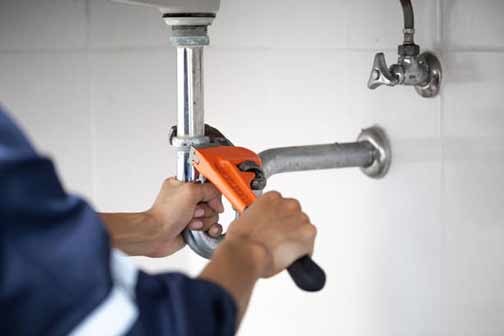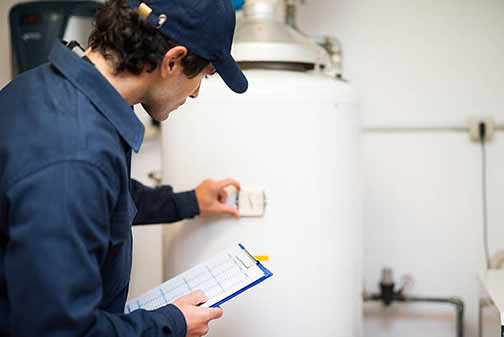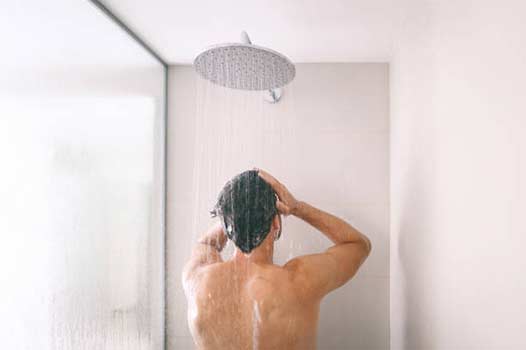
Your shower system is an intricate network of pipes, valves, and fixtures designed to deliver a consistent flow of hot water. At its core, the system relies on a water heater, which heats the water to your desired temperature before it travels through the pipes to the showerhead. The balance between hot and cold water is controlled by a mixing valve, ensuring you get the perfect temperature every time you step into the shower. Understanding how this system works is crucial to identifying and resolving issues that may arise, such as blocked pipes.
The Unseen Culprit: How Blocked Pipes Lead to Cold Showers
Blocked pipes are often an overlooked issue when it comes to cold showers. When pipes are obstructed, the flow of hot water is restricted, causing an imbalance in the water temperature. This can result in sudden bursts of cold water, disrupting your shower experience. Blockages can occur in various parts of the plumbing system, including the water heater, mixing valve, or the pipes themselves. Recognizing the role that blocked pipes play in causing cold showers is the first step in addressing and preventing this common problem.
Common Causes of Blocked Pipes
Several factors can contribute to blocked pipes. Accumulation of mineral deposits, also known as limescale, is a common culprit, especially in areas with hard water. Hair, soap scum, and other debris can also build up over time, leading to blockages. Additionally, corrosion and rust within the pipes can create obstructions, further complicating the issue. Understanding these common causes can help you take proactive measures to prevent blockages and maintain a consistent flow of hot water in your shower.
Signs That Your Pipes Might Be Blocked
Identifying the signs of blocked pipes early can help prevent cold showers and other plumbing issues. Common indicators include reduced water pressure, unusual noises coming from the pipes, and water that takes longer to heat up. In some cases, you may also notice a foul odor emanating from the drains, indicating a buildup of organic matter within the pipes. Being aware of these signs can help you address blockages before they become a more serious problem.
Preventive Measures to Keep Your Pipes Clear
Regular maintenance is key to preventing blocked pipes and ensuring a consistent flow of hot water. Installing water softeners can help reduce mineral deposits, while using drain covers can prevent hair and debris from entering the pipes. Additionally, scheduling routine inspections with a professional plumber can help identify and address potential issues before they escalate. Taking these preventive measures can help you avoid the inconvenience and discomfort of cold showers caused by blocked pipes.
DIY Solutions for Minor Blockages
For minor blockages, there are several DIY solutions you can try before calling a professional. Using a plunger or a drain snake can help dislodge debris and restore proper water flow. Additionally, pouring a mixture of baking soda and vinegar down the drain can help break down organic matter and clear minor obstructions. However, it’s important to avoid using harsh chemical drain cleaners, as they can damage your pipes and exacerbate the problem. By addressing minor blockages yourself, you can save time and money while maintaining the efficiency of your shower system.

Knowing when to call a professional can help you avoid more serious problems and keep your shower system running smoothly.
When to Call a Professional Plumber
While DIY solutions can be effective for minor blockages, there are times when it’s best to call a professional plumber. If you experience persistent issues with water temperature or pressure, or if you suspect a more serious blockage, a professional can conduct a thorough inspection and provide the necessary repairs. Additionally, if your plumbing system is old or has a history of issues, regular professional maintenance is recommended to ensure its longevity and efficiency. Knowing when to call a professional can help you avoid more serious problems and keep your shower system running smoothly.
The Long-Term Impact of Neglecting Blocked Pipes
Neglecting blocked pipes can have serious long-term consequences. Over time, blockages can lead to increased pressure within the pipes, causing leaks or even burst pipe emergencies. This can result in significant water damage to your home and costly repairs. Additionally, persistent blockages can reduce the efficiency of your water heater, leading to higher energy bills and a shorter lifespan for the appliance. By addressing blocked pipes promptly, you can avoid these long-term impacts and ensure the longevity of your plumbing system.
Conclusion: Ensuring a Comfortable Shower Experience
In conclusion, blocked pipes are a frequently overlooked issue that can disrupt your daily routine and lead to cold showers. By understanding the causes and signs of blocked pipes, and taking preventive measures, you can ensure a consistent flow of hot water and a comfortable shower experience. Regular maintenance and timely intervention by a professional plumber are essential to keeping your plumbing system in top condition and avoiding the long-term consequences of neglecting blocked pipes. By taking these steps, you can enjoy a reliable and enjoyable shower experience every day.
Understanding the Role of Water Heaters in Your Shower System
Water heaters play a pivotal role in your shower system by heating the water to your desired temperature. There are various types of water heaters, including tankless, tank-style, and solar water heaters. Each type has its own set of advantages and disadvantages. For instance, tankless water heaters provide hot water on demand and are more energy-efficient, while tank-style water heaters store a large volume of hot water, making them suitable for households with high hot water demand. Understanding the role and functionality of your water heater can help you identify issues related to blocked pipes and cold showers.
The Impact of Water Pressure on Your Shower Experience
Water pressure is a crucial factor that affects your shower experience. Low water pressure can be a sign of blocked pipes, which can lead to cold showers. Conversely, high water pressure can cause wear and tear on your plumbing system, potentially leading to leaks and blockages. It’s important to monitor your water pressure and address any abnormalities promptly. Installing a pressure regulator can help maintain optimal water pressure, ensuring a consistent and comfortable shower experience.
How Hard Water Contributes to Blocked Pipes
Hard water contains high levels of minerals, such as calcium and magnesium, which can accumulate in your pipes over time. This accumulation, known as limescale, can restrict water flow and lead to blockages. Hard water is a common issue in many households and can significantly impact your plumbing system. Installing a water softener can help reduce the mineral content in your water, preventing limescale buildup and keeping your pipes clear. Regularly cleaning your showerhead and faucets can also help mitigate the effects of hard water.
The Role of Mixing Valves in Maintaining Water Temperature
Mixing valves are essential components of your shower system that blend hot and cold water to achieve your desired temperature. When mixing valves become clogged or malfunction, they can cause temperature fluctuations, leading to cold showers. Regular maintenance of mixing valves, including cleaning and replacing worn-out parts, can help ensure they function properly. Understanding the role of mixing valves can help you diagnose and address issues related to blocked pipes and water temperature.

Scheduling annual plumbing inspections can save you time, money, and the inconvenience of unexpected plumbing issues.
The Importance of Regular Plumbing Inspections
Regular plumbing inspections are vital for maintaining the health and efficiency of your shower system. During an inspection, a professional plumber can identify potential issues, such as blocked pipes, leaks, and worn-out components, before they escalate into more serious problems. Inspections can also help you stay informed about the condition of your plumbing system and take proactive measures to prevent cold showers and other disruptions. Scheduling annual plumbing inspections can save you time, money, and the inconvenience of unexpected plumbing issues.
Environmental Impact of Neglecting Plumbing Maintenance
Neglecting plumbing maintenance not only affects your shower experience but also has environmental consequences. Blocked pipes and inefficient water heaters can lead to increased water and energy consumption, contributing to higher utility bills and a larger carbon footprint. By maintaining your plumbing system and addressing issues promptly, you can reduce water waste and energy usage, promoting a more sustainable lifestyle. Simple actions, such as fixing leaks and insulating pipes, can have a significant positive impact on the environment.
How to Choose the Right Plumber for Your Needs
Choosing the right plumber is crucial for ensuring the proper maintenance and repair of your shower system. Look for licensed and insured professionals with experience with drain cleaning and other plumbing issues. Reading reviews and asking for recommendations from friends and family can help you find a reliable plumber. Additionally, consider plumbers who offer warranties on their work and provide detailed estimates before starting any repairs. Building a relationship with a trustworthy plumber can give you peace of mind and ensure your plumbing system remains in top condition.
Innovative Technologies in Modern Plumbing Systems
Modern plumbing systems have benefited from various technological advancements that improve efficiency and convenience. Smart water heaters, for example, allow you to control water temperature and monitor energy usage through a smartphone app. Leak detection sensors can alert you to potential issues before they cause significant damage. Additionally, advanced water filtration systems can remove impurities and reduce the risk of blockages. Staying informed about these innovative technologies can help you make informed decisions about upgrading and maintaining your shower system.
Addressing Seasonal Plumbing Challenges
Different seasons can present unique challenges for your plumbing system. In winter, for instance, pipes are at risk of freezing and bursting, which can lead to blockages and cold showers. Insulating your pipes and keeping your home adequately heated can help prevent these issues. In the summer, increased water usage can strain your plumbing system, making regular maintenance even more critical. Understanding and addressing seasonal plumbing challenges can help you maintain a consistent and comfortable shower experience year-round.
Conclusion: Ensuring a Comfortable Shower Experience
In conclusion, blocked pipes are a frequently overlooked issue that can disrupt your daily routine and lead to cold showers. By understanding the causes and signs of blocked pipes, and taking preventive measures, you can ensure a consistent flow of hot water and a comfortable shower experience. Regular maintenance and timely intervention by a professional plumber are essential to keeping your plumbing system in top condition and avoiding the long-term consequences of neglecting blocked pipes. By taking these steps, you can enjoy a reliable and enjoyable shower experience every day.
